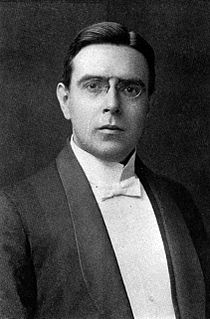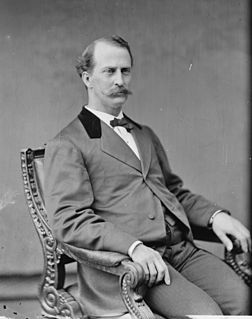A Quote by Friedrich Nietzsche
It may be that until now there has been no more potent means for beautifying man himself than piety: it can turn man into so much art, surface, play of colors, graciousness that his sight no longer makes one suffer.---
Related Quotes
Savings represent much more than mere money value. They are the proof that the saver is worth something in himself. Any fool can waste; any fool can muddle; but it takes something more of a man to save and the more he saves the more of a man he makes of himself. Waste and extravagance unsettle a man's mind for every crisis; thrift, which means some form of self-restraint, steadies it.
One who was born in the house of a warrior, regardless of his rank or class, first acquaints himself with a man of military feats and achievements in loyalty....Everyone knows that if a man doesn't hold filial piety toward his own parents he would also neglect his duties toward his lord. Such a neglect means a disloyalty toward humanity. Therefore such a man doesn't deserve to be called 'samurai'.
I wonder, only in passing, whether the indelible ornamentation that man inscribes upon his own epidermis does not respond to a nostalgia for the universal internally generated coloring of corrollas, furs, shells, carapaces and wings. For man it has been necessary to create both works and tools outside of himself. But it may be that he retains an obscure nostalgia to create them on his own body, to make them a part of it rather than projecting them outwards onto an independent surface, where he is free to retouch them as he sees fit, which is precisely what painting and art are.
It is a truism that as long as man loves but himself and his art he can never attain to the full measure of manhood or reach the sublimest heights of his art. He must seek to love men as brothers and art, not for the sake of art itself, but art as a means toward bringing all men up to that verdant plateau where their souls may be fed in very rejoicing in all that is true, beautiful, and abiding.
The so-called godly man may be more likely to do serious wrong than a man who deeply questions himself. The 'godly man' often zealously follows religious precepts that, in the end, justify an unjust injury to others, while the questioning man, addressing his own conscience, may have the better chance to consider all the circumstances and come to the just decision.
Art on the contrary sought this harmony in practice [of art itself]. More and more in its creations it has given inwardness to that what surrounds us in nature, until, in Neo-Plasticism, nature is no longer dominant. This achievement of balance may prepare the way for the fulfillment of man and signal the end of (what we call) art.
Even broken in spirit as he is, no one can feel more deeply than he does the beauties of nature. The starry sky, the sea, and every sight afforded by these wonderful regions, seems still to have the power of elevating his soul from earth. Such a man has a double existence: he may suffer misery, and be overwhelmed by disappointments; yet, when he has retired into himself, he will be like a celestial spirit that has a halo around him, within whose circle no grief or folly ventures.
The man who has given himself to his country loves it better; the man who has fought for his friend honors him more; the man who has labored for his community values more highly the interests he has sought to conserve; the man who has wrought and planned and endured for the accomplishment of God's plan in the world sees the greatness of it, the divinity and glory of it, and is himself more perfectly assimilated to it.
[Robin Stewart] was your man. True for you, you had withdrawn the crutch from his sight, but still it should have been there in your hand, ready for him. For you are a leader-don't you know it? I don't, surely, need to tell you?-And that is what leadership means. It means fortifying the fainthearted and giving them the two sides of your tongue while you are at it. It means suffering weak love and schooling it till it matures. It means giving up you privicies, your follies and your leasure. It means you can love nothing and no one too much, or you are no longer a leader, you are led.
As eternity is longer than time, as mind is stronger than matter, as thought is swifter than the wind, as genius is more potent than gold, so will the results of well-directed labors toward the development of man's higher faculties ever outweigh a thousand fold any estimate in the currency of commerce, which man can put upon such efforts.
The man who is meek is not even sensitive about himself. He is not always watching himself and his own interests. He is not always on the defensive… To be truly meek means we no longer protect ourselves, because we see there is nothing worth defending… The man who is truly meek never pities himself, he is never sorry for himself. He never talks to himself and says, “You are having a hard time, how unkind these people are not to understand you.










































